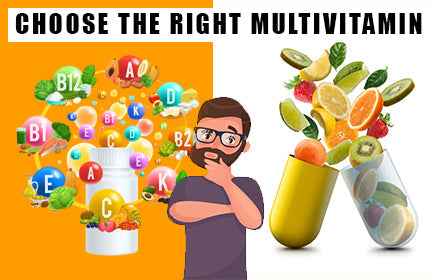Beetroot Benefits: Blood Pressure, Exercise Performance, and Liver Health
The beetroot is one of the fascinating plants people can take from a natural health perspective. It’s health benefits are as robust as other compounds in nature such as turmeric, black cumin, garlic, and astragalus. While each of these compounds seems to target one or a few physiological factors in the human body, the beetroot primarily supports two aspects: cardiovascular health and liver health. This article will review the physical benefits of the beetroot while supporting the details with scientific research, and we will finish by discussing the benefits of Healthmasters’ Beet Juice Power.
Beginning with cardiovascular health, the term cardiovascular broadly encompasses several benefits of the beetroot, so there is a wide range of cardiovascular benefits ranging from blood pressure-lowering effects [1] to possible increased performance during aerobic exercises [2]. These two traits can be primarily attributed to one point: beetroot is high in nitrate, and your body converts nitrate into nitric oxide. Nitric oxide is a vasodilator, meaning it relaxes the inner muscled of your blood vessels, which caused the vessels to widen. Consequently, nitric oxide increases blood flow and lowers blood pressure.
More interestingly, research studies have shown that many people with high blood pressure may have the inability to use the nitric oxide in their bodies [3] [4]. However, because beetroot is high in nitrate, the body can convert the nitrate into nitric oxide, thus giving the body the additional nitric oxide it needs.
Blood Pressure
In a 2015, randomized, phase 2, double-blind, placebo-controlled study, the researchers suggested the “role for dietary nitrate as an affordable, readily-available, adjunctive treatment in the management of patients with hypertension” [5]. In that study, the dietary nitrate supplementation they used was beetroot juice, and it showed exceptional results.
In a 2016 study, researchers investigated both beetroot and spinach, which is also high in nitrate, and they achieved similar results. The researchers noted, “When compared with [the] baseline, systolic blood pressure declines [or “declined”] 150 min after ingestion of beetroot juice (from 118 ± 2 to 113 ± 2 mm Hg; P < 0.001)" [6]. The researchers concluded beetroot juice beverages effectively increase plasma nitrate and nitrite concentrations and lower blood pressure to a greater extent than sodium nitrate, and they claim “these findings show that nitrate-rich vegetables can be used as dietary supplements” [6].
In a 2015, randomized, crossover trial, researchers investigated whether vegetables containing high-nitrate (HN) levels would reduce blood pressure in healthy women. For one week, one group received HN vegetables, and the other group avoided HN vegetables. The researchers found that the HN diet significantly increased plasma nitrate concentration, and as a result, reduced blood pressure in normotensive women [7].
To top off this point, in 2017, an article was published entitled “The Nitrate-Independent Blood Pressure-Lowering Effect of Beetroot Juice: A Systematic Review and Meta-Analysis” [8]. A meta-analysis is a statistical procedure of combining data from several studies to get a more holistic view of the research, and this meta-analysis of 43 studies found participant’s systolic and diastolic blood pressures decreased by an average of 3.55 and 1.32 mm Hg, respectively, after they took nitrate supplements [8].
Exercise Performance
Since nitric oxide is involved in many cell processes, including vasodilation, nitric oxide seems to increase the delivery of nutrients and oxygen to working muscles during exercise, thus enhancing exercise performance. Even during the 2012 Olympics, people noticed that many athletes were drinking beet juice to increase their athletic performance [9]. This section will focus on reviewing articles which link nitrates to exercise performance.
In a 2017 study entitled “The Effect of Dietary Nitrate Supplementation on Endurance Exercise Performance in Healthy Adults: A Systematic Review and Meta-Analysis,” researchers aimed to conduct a meta-analysis review to determine the effect of dietary nitrate supplementation on endurance exercise performance [10]. The researchers concluded that dietary nitric oxide supplementation is likely to have a positive outcome when testing endurance capacity and called for further research linking nitrate supplementation to increase athletic performance.
Likewise, a 2013 study entitled “The effect of nitrate supplementation on exercise performance in healthy individuals: a systematic review and meta-analysis” found similar results, and the researchers “suggest that nitrate supplementation is associated with a moderate improvement in constant load time to exhaustion tasks” [11].
The most recent study I could find was a 2019 study conducted earlier this year entitled “Effects of chronic beetroot juice supplementation on maximum oxygen uptake, velocity associated with maximum oxygen uptake, and peak velocity in recreational runners: a double-blinded, randomized and crossover study” [12]. The researchers found the consumption of nitrate supplements improved the runner’s maximum oxygen uptake, velocity associated with maximum oxygen uptake, and the peak velocity in recreational runners without changing any of the other analyzed variables [12].
Since I am on the topic of increased exercise performance, L-citrulline, an ingredient in Healthmasters’ HGH Stimulate, has also been shown to enhance nitric oxide production in the body, and as a result, may have similar results as a beetroot supplement regarding exercise performance as well as promote cardiovascular health [13].
Liver Health
Along with promoting healthy blood pressure and exercise performance, plenty of studies have also argued beetroot juice promoted liver health. This predominantly occurs because beetroots have high levels of specific antioxidants: betalains. This section will focus on reviewing studies which link beetroot juice to aspects of liver health.
In a 2012 study, researchers studied the effects of betalains and whether they protected against N-nitrosodiethylamine-induced liver injury in rats, and they concluded “results confirm the protective effect of beetroot juice against oxidative damage shown in our previous studies and indicate that metabolic alterations induced by beetroot feeding may protect against liver damage” [14].
In a 2014 study, researchers extracted betalains and betanin, both antioxidants, from beetroots and found they had come anticancer effects against liver cancer cells [15], and another study found beetroots protect the liver against several types of chemically-induced liver damage [16].
Finally, in a 2018 study entitled “Beet Stalks and Leaves (Beta vulgaris L.) Protect Against High-Fat Diet-Induced Oxidative Damage in the Liver in Mice,” researchers found “The presence of flavonoids, such as Vitexin derivatives in beet stalks and leaves can help the liver damage induced by HF [high-fat] diet” [17].
Conclusion
With a holistic view, one can gather beetroot supplementation has a substantial array of benefits with numerous studies arguing this point. Beetroot has been shown to increase nitric oxide levels in the body, which, in turn, decrease blood pressure [5] [6] [7] [8]. Also, because nitric oxide is a vasodilator, veins can transport oxygen and nutrients more efficiently during exercise, thus increasing exercise performance [10] [11] [12] [13]. Finally, studies have shown the positive effects beetroot antioxidants have in promoting liver health [14] [15] [16] [17].
Healthmasters’ Organic Beet Crystal Powder is imported from Germany and is produced without carrier substances in a particular drying procedure from organic red beet juice and is the most pure beet juice product we would find on the market. Our product mixes well into fruit juices, milk and milk products, soups, muesli, cereals, and other dishes.
If you have any questions about Healthmasters’ Organic Beet Crystal Powder, please call our office at 800.726.1834
References:
[1] https://www.ncbi.nlm.nih.gov/pubmed/29141968
[2] https://www.ncbi.nlm.nih.gov/pubmed/30058956
[3] https://www.ncbi.nlm.nih.gov/pubmed/17170603
[4] https://www.ncbi.nlm.nih.gov/pubmed/19054194
[5] https://www.ncbi.nlm.nih.gov/pubmed/25421976
[6] https://www.ncbi.nlm.nih.gov/pubmed/27075914
[7] https://www.ncbi.nlm.nih.gov/pubmed/25683748
[8] https://www.ncbi.nlm.nih.gov/pubmed/29141968
[9] https://www.huffingtonpost.ca/sheila-kealey/beet-juice-olympics_b_1723807.html
[10] https://www.ncbi.nlm.nih.gov/pubmed/27600147
[11] https://www.ncbi.nlm.nih.gov/pubmed/23580439
[12] https://www.ncbi.nlm.nih.gov/pubmed/30747267
[13] https://www.ncbi.nlm.nih.gov/pubmed/17214603
[14] https://www.ncbi.nlm.nih.gov/pubmed/22465004
[15] https://www.ncbi.nlm.nih.gov/pubmed/24467616

